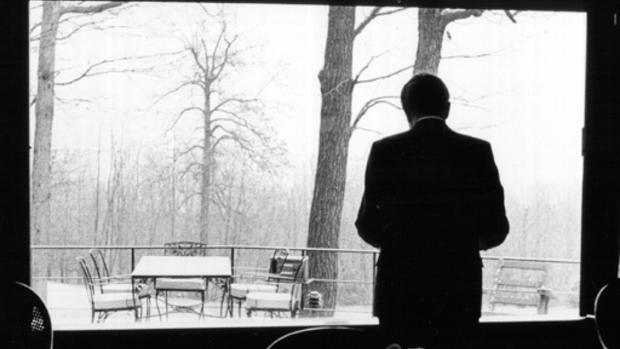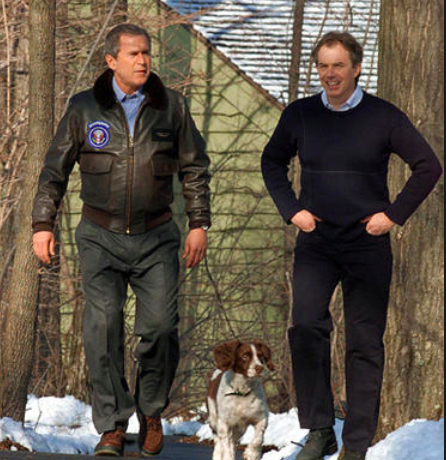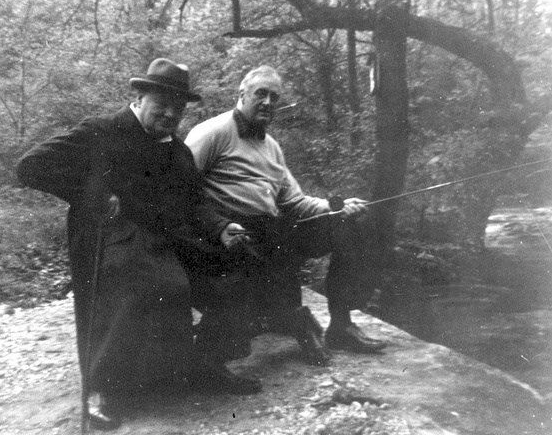How does Obama's use of Camp David compare to past presidents?
Only once before this week has President Obama invited foreign leaders to talks at Camp David.
That was in May of 2012, when he hosted an overnight gathering of leaders from the world's industrialized countries (known as G8) at the presidential retreat in the Catoctin Mountains of Maryland. That summit also included a working lunch with the leaders of Benin, Ethiopia, Tanzania and Ghana.
Thursday, the president is bringing leaders or representatives of the six Gulf states to Camp David: Saudi Arabia, Bahrain, Kuwait, Oman, Qatar, and the United Arab Emirates. It's the perfect setting for Mr. Obama's unexpressed goal - allaying their concerns about the Iran nuclear deal being negotiated.
By comparison, Mr. Obama's predecessor, George W. Bush, travelled to Camp David far more than Mr. Obama has so far, and used the venue considerably more often than his successor has for talks with foreign leaders.
Our CBS News tally shows that on 19 occasions during his 150 visits to Camp David, President Bush played host to a foreign leader.
Mr. Bush seemed to like having leaders join him at the retreat. British Prime Minister Tony Blair accepted an invitation to come to Camp David three times. Other foreign leaders President Bush hosted include Prime Minister Junichiro Koizumi of Japan, President Hosni Mubarak of Egypt, Prime Minister Silvio Berlusconi of Italy, President Pervez Musharraf of Pakistan and Russia's President Vladimir Putin.
And the former president liked other leaders enough to invite him to his Texas ranch, too - 19 times, and nine times for overnight stays while he was in office.
But it's never been President Obama's way of conducting foreign policy and making friends with his international counterparts. This is his 37th visit to Camp David - and only the second time he's hosted foreign leaders. Further, he has never invited any to join him on his vacations in Hawaii and Martha's Vineyard, although on two occasions, he played golf with the prime ministers of New Zealand and Malaysia who just happened to be in Hawaii while he happened to be there, too.
Camp David, situated 62 miles north of Washington, was founded as a presidential retreat and first used by President Franklin Roosevelt in 1942. Initially named Shangri-La, it has been the scene of some historic diplomatic proceedings.
- During World War II, President Roosevelt conferred there with British Prime Minister Winston Churchill.
- Seeking a thaw in the Cold War, President Eisenhower held a Camp David summit with Soviet Leader Nikita Krushchev.
- In 1978, President Carter hosted marathon talks with Israeli Prime Minister Menachem Begin and Egyptian President Anwar Sadat. After 13 days at the 143-acre compound in Maryland's Catoctin Mountains, the leaders emerged with a framework for a peace treaty.
- Twenty-two years later, President Clinton used Camp David to try again nail down a peace agreement
between Israelis and Palestinians. Sometimes the tranquility of the place could work its own kind of magic, but not this time. Israeli Prime Minister Ehud Barak and Palestinian Authority Chairman Yasser Arafat left without a deal.
And one of the most famous moments in Carter's presidency also involved Camp David and a different sort of summit. In 1979, in the throes of the energy crisis, Carter disappeared from the public eye for ten days. He had gone to Camp David to hold secret meetings with community leaders, members of Congress, journalists and other Americans, and, according to his own memoir, he sat on the floor and took notes on what they told him about what was wrong with his presidency. He then emerged to deliver what came to be known as "the malaise speech," in which he talked about his ideas for emerging from the crisis, quoted the people he'd interviewed and told Americans that the problem was that the country was suffering a crisis of confidence, that too many Americans had become too obsessed with consumption and ownership.
This week at the famous retreat, President Obama's goals are decidedly more modest. He isn't looking for any breakthroughs in his talks with leaders or representatives from Bahrain, Kuwait, Oman, Qatar, Saudi Arabia and the United Arab Emirates, but at the very least, the White House expects commitments to expanded cooperation on regional security issues.



